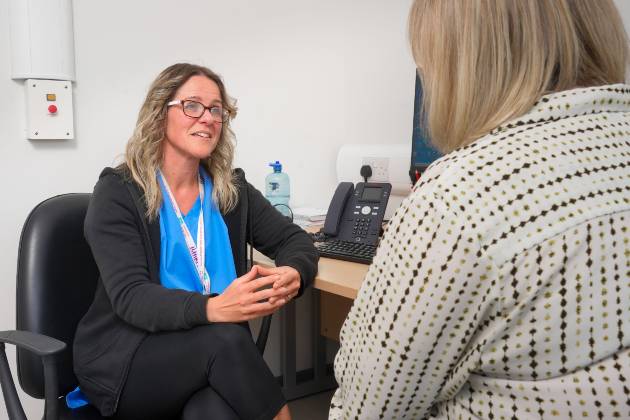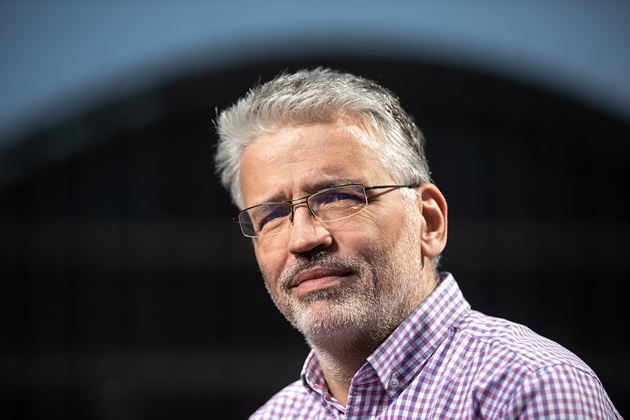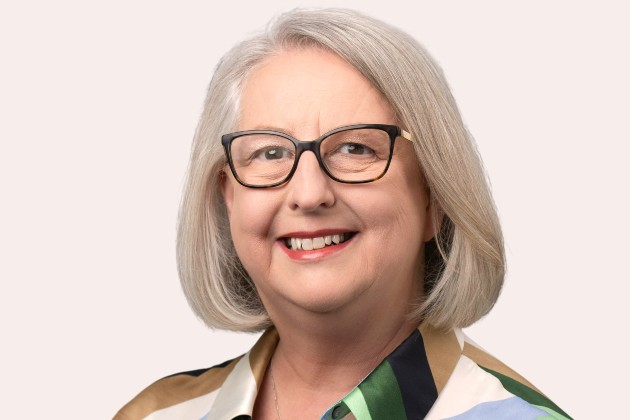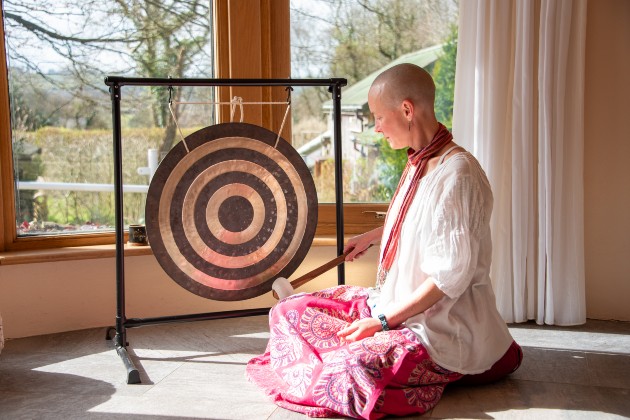Nicola Ranger “had no intention” of working for the RCN, until a conversation with former General Secretary Pat Cullen made her pause. “I was so inspired by Pat,” she says.
Nicola had been working as chief nurse and executive director of midwifery at King's College Hospital in South London, where she found “amazing staff, amazing clinicians, a fantastic place to work,” she says. “If I’m honest, I think I’d still be there if it wasn’t for the pandemic.”
It was 2022, the RCN was on the verge of historic strike action, and Nicola had just steered thousands of nursing staff through the COVID-19 pandemic. She was frustrated with the lack of support for nursing staff coming out of the pandemic. Staff were thrown from pandemic crisis mode straight into the ongoing operational pressures of understaffed, under-resourced services, with no reprieve and little recognition. To make matters worse, NHS England was encouraging measures that Nicola believed would lead to the normalisation of corridor care – an unsafe, undignified practice she knew must be challenged.
When the role of RCN chief nurse became available, she thought about the massive changes the nursing staff at Kings, and across the whole country, needed to improve patient care and their own quality of life. “I thought, I need to put all of my time and energy into the nursing teams,” she says. “It felt like the right time.”
She started the role 4 days before strike action for fair pay began in 2022 (“I felt on the right side of history with that”), but had her eye on wider issues. “Every aspect of nursing needed a fundamental shift,” she says. “The education system needs fixing. Safe staffing needs sorting. Pay needs sorting. Recruitment, retention, our international colleagues and what life is like for them. It is not going to be easy.”
Nicola first joined the RCN when she was 19. As a teenager, growing up in Farnham, Surrey, with her parents and sister, she was sure she wanted to be a social worker, but was told to get some life experience first. Nurse training seemed like a good way to do that.
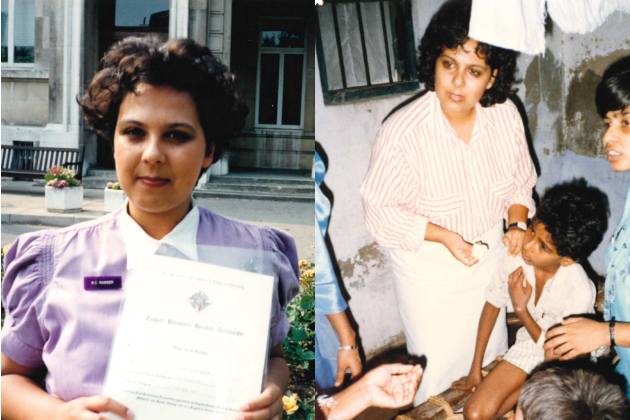
Her first patient was a young man who didn’t have any visitors, so Nicola spent time getting to know him. He was 24, his whole family lived abroad, and he’d decided not to have a heart transplant, knowing he wouldn’t survive. “It was a very brave decision, and then I was with him at the end of his life. I remember thinking, what an amazing job,” she says. “From the very first ward, nursing was way above my expectations. I absolutely loved it.”
Nicola was hooked. Nursing became “a way of life”.
From leprosy clinics to gunshot wounds
Her first staff job was on a surgical ward, but before long, she was in Karachi, Pakistan, volunteering at a hospital, and running leprosy and immunisation clinics. While there, the country entered martial law. “The only way to get to the hospital was in a little white van with the Red Cross, and we had to lie under the bench in case we got caught in crossfire. It was very intense. I’d have stayed longer, but they wanted us to evacuate.”
Her time there made her want to build her clinical skills. Back in England, she completed a specialist intensive care course. “I loved that you got to really build that relationship with patients and their families,” she says. “You were clinically at the top of your game and highly respected as part of a multi-disciplinary team.”
The only way to get to the hospital was in a little white van, we had to lie under the bench in case we got caught in crossfire
Those skills took her overseas again – this time to the US, to Mount Sinai Hospital in New York, then to Washington DC, at a multiple trauma and neurosurgery and cardiothoracic intensive care unit, where she became an “expert in gunshot wounds”.
Here, she also looked after many people with HIV/AIDS, who contributed hugely to HIV clinical trials. “I looked after primarily young men who were ventilated 8 or 9 times, in the most heartbreaking physical state. When I used to say to them, ‘Are you sure you want to be treated again?’, they'd say, ‘I'm keeping alive for the research’.”
Years later, in the dark of a cinema, watching Freddie Mercury biopic Bohemian Rhapsody with her children, she was transported back to that unit. “I sat there sobbing in the cinema, thinking about all the young men who I looked after, who moved treatment from where it was for Freddie Mercury to where it is today. Sometimes [nursing] affects your everyday life when you least expect it.”
Leading the charge
Running a unit in Washington gave Nicola her first taste of nurse leadership. When she returned to England, she continued down that path, initially in a senior clinical role. “I was very proud to be one of the first critical care nurse consultants in England,” she says.
But from that position, Nicola could see issues affecting the whole workforce. “I got a bit frustrated. I could see decisions that needed to be made for the wider nursing team, rather than just my team and patients,” she says.
How to solve the nursing crisis?
Your General Secretary Nicola Ranger spells out what she wants the RCN to fight for.
- Fair pay for nursing. “Respect us, treat us and pay us accordingly.”
- Reform Agenda for Change. Make the NHS pay banding system fairer for nursing staff and ensure every hour worked outside of your designated shift is counted as overtime, Nicola says: “I did that in America, and it worked brilliantly, never had to use an agency nurse because your own staff used that overtime lever.”
- End corridor care. “Corridor care is an absolute disgrace, I’d love us to be the catalyst to calling it out, so that organisations focus on it and solve it. It’s shocking for the patients, and shocking for the profession.”
- Safe staffing. “I do believe in a maximum number of patients that any registered nurse should look after in every setting.”
- Fairer terms for nursing students. “The education system needs fixing. I don't think it's right that nurses are treated as normal students. They’ve got 2,300 practice hours. I disagree with them having to pay for their degrees.”
- Support for internationally educated nursing staff. “It's absolutely wrong that we invite people here to this country, we're so reliant on them, and they have no recourse to public funds and sadly many do not feel valued. This must change.”
She moved into nurse leadership roles: head of nursing for surgery, head of nursing for medicine, then deputy chief nurse at University College London Hospitals NHS Foundation Trust. She loved that it allowed her to “influence” decisions for the good of nursing staff and patients.
Nicola began her first chief nurse role, at Frimley Health NHS Foundation Trust in Surrey in 2013, just after the Francis report into the Mid Staffs crisis was published, an inquiry that laid bare how failings, including inadequate staffing, led to patient deaths. She quickly identified issues with staffing levels at her new trust.
“I had to work with the chief executive and board to get staffing levels to where they needed to be, and that felt like a real achievement,” she says. She succeeded in getting hospitals out of special measures here and in her next role in West Sussex too.
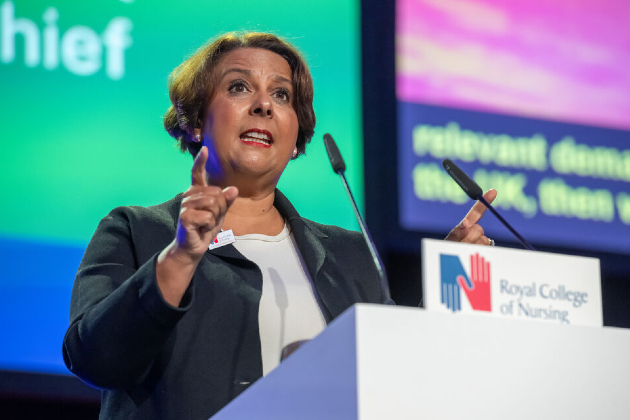
During these years, Nicola met her “incredibly supportive” husband, a consultant surgeon. They have two children together, a son and a daughter, although neither has followed their parents into a career in the NHS – the threat of on-call might’ve loomed too large over their childhoods for that, she laughs. Time with her family and friends, reading, socialising, visiting the theatre or cinema, all help decompress from the pressures of nursing.
Through the pandemic
She started at Kings in July 2019, only a few months before COVID-19 arrived in the UK.
“To lead a hospital through the COVID pandemic, where, at its peak, we had nearly 800 patients with COVID, and about 140 of them ventilated, is something I'll never forget, and I know that sitting below the surface for many nurses, something they'll never forget,” Nicola says. “It was a terrible time, but also an extraordinary time.”
One evening, during one of the worst waves, a young man arrived at Kings’ A&E. Before there was a chance to get his name, he collapsed. He was “so life-threateningly ill” that he was intubated, and needed to be put on a filter, but there only paediatric filters remained. “No one could get this filter working. The tension, we were all by his bed, waiting to see what we could do. And he was getting sicker and sicker, and the unit leader in the ICU was looking at me to say: try and get something else. But we had nothing else left. Then he went into cardiac arrest,” she recalls.
To lead a hospital through the COVID pandemic is something I'll never forget
There are so many moments like this, so many patients, that dwell in Nicola’s mind. “I'm not unique. So if I feel that, what about all the other nurses?” she says. “We’ve had no time to process. That’s why all this matters so much. That’s why it feels personal.”
She hoped society would reflect on the value of the nursing workforce and what needed fixing to help them do their jobs. But that didn’t happen.
Fighting for change
“There is something so genuinely unique about nurses and nursing support workers and nursing associates,” Nicola says. “If they are not brilliant, patient care suffers. If there aren't enough of them, patient care suffers. We are the most undervalued, but the most vital.”
Becoming chief nurse and now general secretary of the RCN felt like a way to fight for nursing staff – for loan forgiveness for nursing students, pay banding that reflects the skills of nursing staff, paid overtime, safe staffing measures in every setting – and shout about their true value. There is “real accountability sitting on your shoulders” Nicola says. “We have to get a win for nursing.”
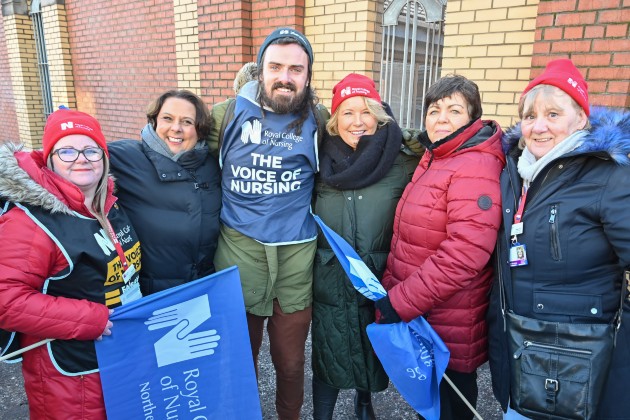
After witnessing the power of members battling for patients through the pandemic and coming together on picket lines, Nicola is more determined than ever to fight for that win.
“I understand what nursing needs, I bring that lived experience. I always say: don't mistake kindness for weakness,” she says.
“Believe in ourselves, believe in our profession, and truly show our value.”
Find out more
- Inspired to fight for change for nursing staff? Find out how to get involved here.
- Nicola is part of the RCN's executive team. Get to know the other members here.




